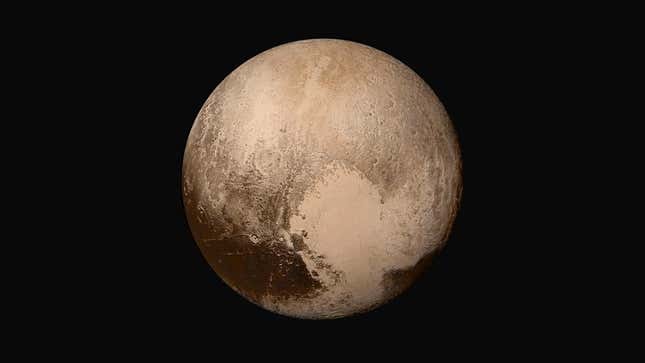Image Credit:SamsungSamsung has commenced teasing its subsequent flagship cellphone SoC — predicted to be known as the Exynos 2200 — in advance of a January eleventh statement with a tantalizing tidbit of information: the brand new chipset will function a GPU powered through AMD’s RDNA 2 pics architecture, higher regarded for powering the subsequent-gen pics at the Xbox Series X, PlayStation 5, and AMD’s RX 6000-collection pics cards.
Of course, for the reason that the Exynos 2200 may be powering a cellphone, the brand new GPU won’t be magically allowing subsequent-gen pics on par with the maximum effective consoles and gaming PCs.
But it probable will allow a few upgrades in pics, along with something different improve Samsung has up its sleeve for its modern flagship chip.
#PlaytimeIsOver. The gaming marketplace is about to get serious. Stay tuned for the next #Exynos with the new GPU born from RDNA 2. January 11, 2022. pic.twitter.com/0H2MeVUbeS— Samsung Exynos (@SamsungExynos) December 30, 2021
A successor to the 2021 Exynos 2100, the Exynos 2200 is expected to power some of Samsung's top performing phones in 2022, including the alleged Galaxy S22 and S22 Ultra. Limited to international models of their upcoming flagships, with the US variants presumably configured for the recently announced Snapdragon 8 Gen 1 chipset from Qualcomm.
Fortunately, we don't have to wait long for more details on the Exynos 2200 (or whatever Samsung calls it) as the company promises an official debut on January 11th.
https://bit.ly/3qCs1QG
SCIENTISTS TO TEST HIGH DEXAMETHASONE DOSES IN COVID-19 PATIENTS
İmage Credit: AFP Photo
British scientists will investigate whether higher doses of a cheap and widely used steroid called dexamethasone might work better in severe COVID-19 patients compared to standard lower doses, they said Thursday. , showed that it was able to save the lives of COVID-19 patients in a so-called "breakthrough" in the coronavirus pandemic.
They found that a 6 mg daily dose of dexamethasone, used to reduce inflammation in diseases such as arthritis, reduced the death rate among critically ill COVID-19 patients in hospitals by about a third.
"Given the rapid spread of the Omicron variant, we can expect patients with severe COVID-19 to be hospitalized for a while," said Peter Horby, a professor at Oxford University who co-led the study.
“So it is very important that we continue RECOVERY to compare a higher dose of 20 mg dexamethasone given once a day for five days, followed by 10 mg once a day for another five days, with the usual low dose treatment.
Process is supported by the UK government and Microsoft billionaire Bill Gates and his ex-wife Melinda French's charity.
Last week, scientists began investigating GSK and Vir Biotechnology's antibody-based drug COVID19 as a possible treatment for hospital patients.
https://bit.ly/3pDS62q
https://bit.ly/3pDS62q
Pluto should be reclassified as a planet, Scientists reclaimed
Photo: NASA/Johns Hopkins University Applied Physics Laboratory/Southwest Research Institute
You know the old motto: Nobody can hear you screaming in space. Unfortunately, being trapped in our rapidly heated rock, we can hear everyone screaming very well, especially those ironically howling about the specifics of space.
Checked in at our degraded friend Pluto, it was certainly not a planet, despite a decade and a half of complaints from overly engaged astronomy fans (Welcome to the world of pop culture, astronomy fans).
His appointment lately has primarily sought to compensate everyone, the fact of the matter is that the International Astronomical Union is still very unlikely to step back on its 2006 decision apparently they raised their hands and gave their goforbroke request from "To hell.
We not only want Pluto to come back, we want 150 more damn planets to be added to the list."
That's the gist of a new article published in the research journal Icarus that argues that the IAUs are the real Jabronis here, dammit.
As NBC News breaks it down, the team of scientists claims that the current planetary classification system relies more on outdated astrological methods. (read: pseudoscientific) terminology and should be updated to reflect modernity. A "planet" is by definition "any geologically active body" in space that would not only bring Pluto into its lap, but also moons such as Europa, Enceladus and Titan, as well as the asteroid Ceres.
A total of around 150 new "planets" will be added to the eight existing ones. Unfortunately, as planetary geologist Paul Byrne explained, all of this backlash to taxonomy often overshadows many of the other really fascinating aspects of these celestial bodies of all sizes.
"Every time I gave a talk and put up a picture of Pluto, the first question wasn't about the geology of the planet, but why was it degraded?" he told NBC News. "It stuck with people, and that's a real shame.
https://bit.ly/3qBpk1M
https://bit.ly/3qBpk1M
Subscribe to:
Comments (Atom)


